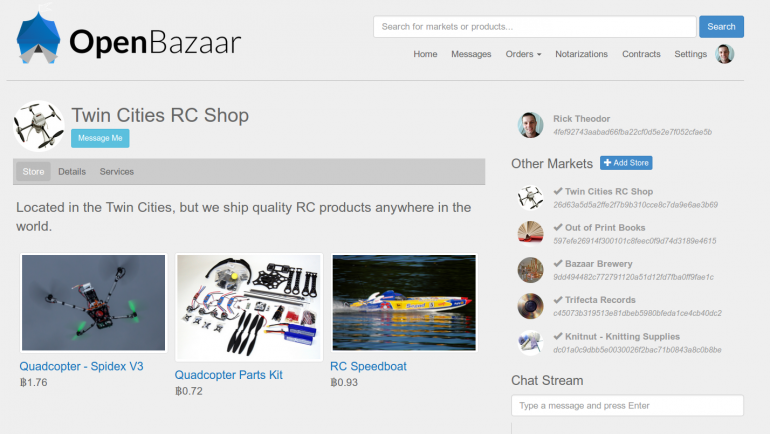The core development team of the OpenBazaar project announced today that it has raised $1 million in seed funding from Union Square Ventures, Andreessen Horowitz, and William Mougayar, a Toronto-based angel investor with close ties to the city’s FinTech and blockchain communities.
OpenBazaar is an open source project, which uses software to create a decentralized network of buyers and sellers to offer their goods and services directly. The decentralized nature of the platform means that there are no listing or transaction fees, ability to monitor or capture data, or restrict trade.
“The Internet has decentralized communications, and Bitcoin has decentralized money, but online commerce still relies on numerous intermediaries,” Brian Hoffman, OpenBazaar’s project lead, told BetaKit. “OpenBazaar removes the intermediaries and gives everyone – individuals to large companies – the ability to directly engage in trade with anyone in the world, for free.”
While not a Canadian project, the Toronto connection is significant. OpenBazaar was originally based upon the code for DarkMarket, created by Amir Taaki and Airbitz during the 2014 Toronto Bitcoin Expo (BetaKit was a media sponsor). DarkMarket won the Expo’s hackathon.
Shortly after, Hoffman contacted Taaki about forking DarkMarket’s code and continuing development. The result was OpenBazaar, which has quickly caught on amongst the FinTech development community, with over 1,400 developers worldwide tracking the project on GitHub, and 100 of those contributing code. That developer attention led Hoffman to raise funding to enable his core team of developers to work on the project full-time, and launch a company named OB1 to build services for OpenBazaar users.
It’s hard to imagine that such prominent developer and VC attention could come from one hackathon, but it’s a notion that Mougayar fully supports.
“What happens in hackathons is not to be understated,” Mougayar said. “It is the ultimate display of software engineering creativity. Every feather of innovation has a potential road ahead of it. In this case, it was part serendipitous, part intentional that the original hack caught Brian Hoffman’s attention, and when I reconnected with him, we recounted that I was in that room in Toronto, but I had no idea at the time of my future potential involvement with that project.”
Mougayar also believes that it wasn’t just the hackathon, but the city which hosted it, that aided the serendipity. “I know for a fact that Toronto has several blockchain and cryptocurrency related talent and startups, with innovation power at par with the U.S., and some of these will become more visible over the next few months ahead,” he said.



